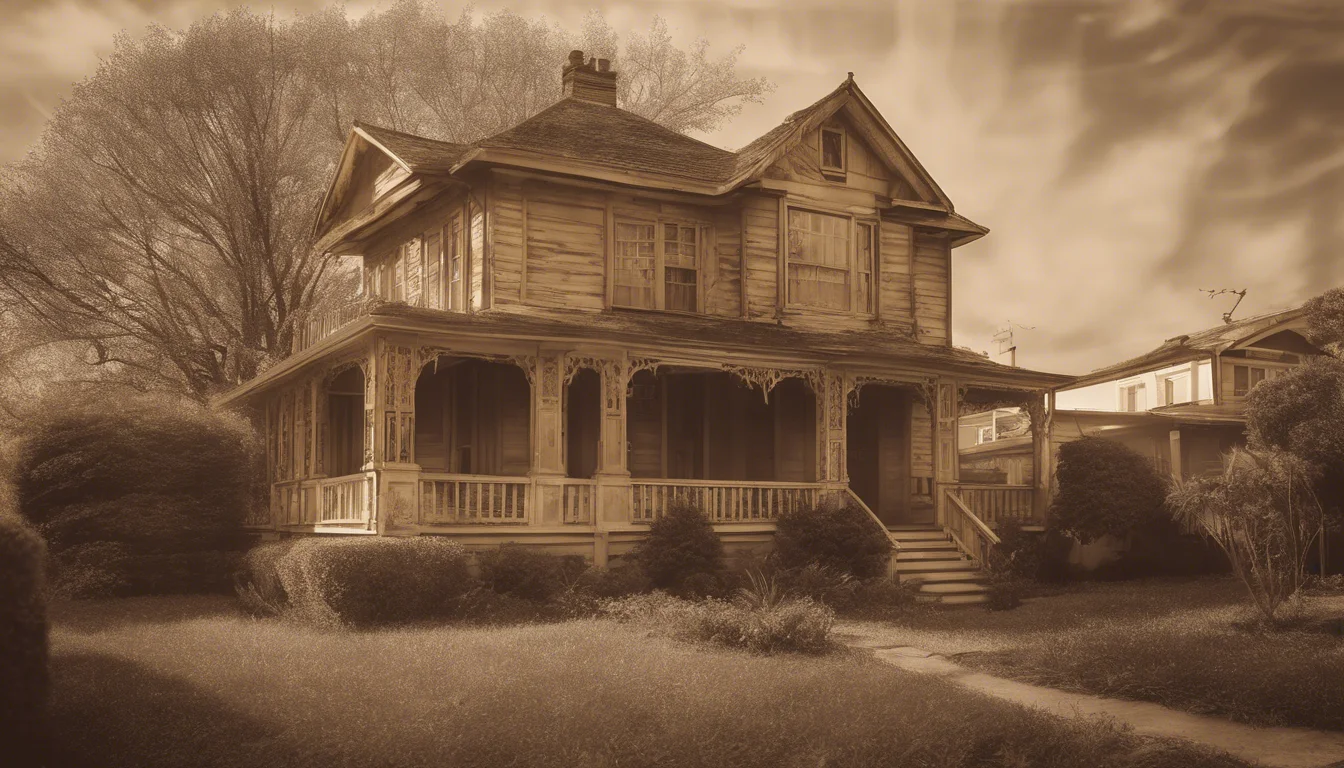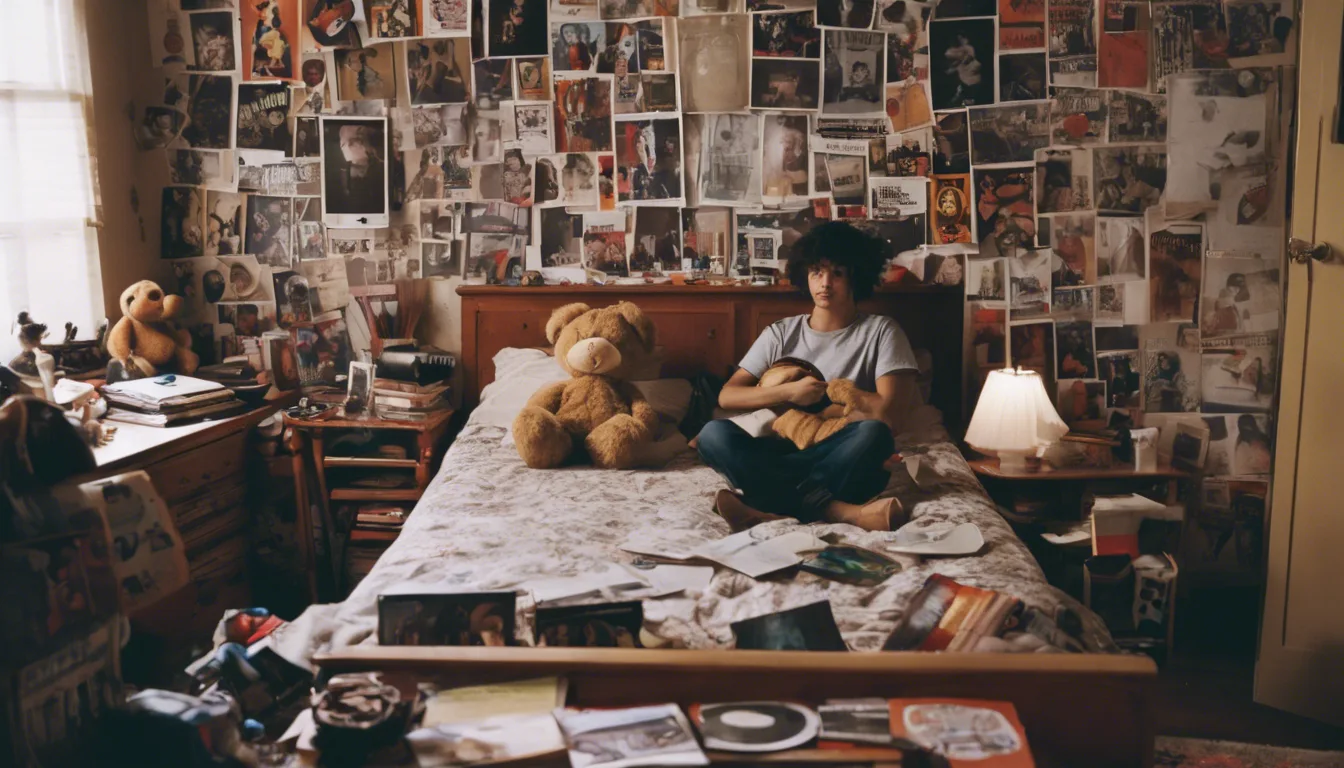10 Types of People Who Dream About Their Childhood Home
Want a Personalized Dream Interpretation?
Curious about how people like you interpret this dream symbol? Explore personalized interpretations tailored to your demographic. Get personalized insights for free!
Get Free Interpretation Now →Table of Contents
1. People with Attachment Issues
-
Childhood homes often represent safety, comfort, and a sense of belonging. For people with attachment issues, these dreams can be a longing for the stability and security they may have lacked in their early lives.
-
Conversely, people with attachment issues may have nightmares about their childhood homes, symbolizing feelings of fear, abandonment, or neglect experienced during their upbringing.
-
Dreams about childhood homes can also indicate a desire for emotional healing or a need to confront unresolved issues from the past.
-
These dreams may prompt individuals to reflect on their childhood experiences, relationships, and how they have shaped their current attachment patterns.
-
By delving into the symbolism of their dreams, people with attachment issues can gain insights into their subconscious desires, fears, and motivations, potentially leading to personal growth and improved relationships.
2. People Undergoing Major Life Transitions
-
For individuals embarking on new life chapters, such as transitioning to a new career, getting married, or welcoming a child, dreams of their childhood home often surface.
-
These dreams evoke a mix of nostalgia and apprehension, reflecting the sleeper's subconscious processing of the significant changes they're navigating.
-
The familiar spaces and objects of the childhood home serve as potent symbols of security, comfort, and stability.
-
Recurring dreams of returning to the childhood home can indicate a yearning for simpler times, a desire to reconnect with one's roots, or a longing for the emotional safety and support of the past.
-
Alternatively, dreams of childhood home in disrepair or undergoing renovations might symbolize the sleeper's perception of their current life as chaotic, unstable, or in need of transformation.
-
Dreams about childhood homes can also be a way for the subconscious to process unresolved emotions or conflicts related to the sleeper's upbringing or family dynamics.
-
Exploring these dreams in a therapeutic setting can offer valuable insights into the individual's inner struggles and help them navigate life transitions with greater clarity and resilience.
3. People Experiencing Nostalgia
For those experiencing nostalgia, the childhood home holds deep emotional significance in the tapestry of their dreams. It transforms into a symbolic realm, evoking memories and feelings from a bygone era.

Journeying back to one's childhood home in dreams speaks to a longing for simplicity, a desire to escape the complexities of adulthood and reconnect with a time of innocence and carefree living. It's a yearning for the comfort and familiarity of those formative years, a sanctuary where one felt safe, loved, and unconditionally accepted.
The condition of the childhood home in dreams offers clues to the dreamer's current emotional state. A well-maintained home suggests a sense of stability and contentment, while a dilapidated or neglected home may indicate feelings of insecurity, anxiety, or a sense of loss.
Exploring the various rooms of the childhood home can reveal specific aspects of the dreamer's psyche. The kitchen, often the heart of the home, may represent nourishment, warmth, and family gatherings. The bedroom, a sanctuary of rest and privacy, might reflect the dreamer's inner world, their thoughts and emotions. The living room, a place of shared experiences and social interactions, could signify the dreamer's relationships and social connections.
Encountering people from the past, such as family members or childhood friends, within the dream home adds another layer of symbolism. These encounters can offer insights into unresolved issues or relationships that continue to influence the dreamer's present life. They can also symbolize aspects of the dreamer's personality that they may have outgrown or suppressed.
The childhood home in dreams is a multifaceted symbol that invites exploration and reflection. By delving into the details and emotions of these dreams, individuals can gain a deeper understanding of their inner selves, their current struggles, and the lingering influence of their past.
4. People Dealing with Childhood Trauma
In the realm of dream interpretation, the childhood home often holds a profound significance, especially for individuals navigating the complexities of childhood trauma. Each room, object, and interaction within this ethereal abode can offer glimpses into subconscious conflicts, unresolved emotional wounds, and the poignant yearnings for a sense of security and belonging.
For those grappling with childhood trauma, dreams of their childhood home can be both comforting and haunting. On the one hand, the familiar sights, sounds, and scents of their former residence can provide a sense of nostalgia and a longing for simpler times. However, these dreams can also be laced with disturbing imagery, evoking feelings of fear, vulnerability, and a sense of being trapped.
The state of the childhood home in dreams is often a reflection of the dreamer's current emotional state. A dilapidated or neglected home may symbolize feelings of abandonment, neglect, or a lack of emotional safety. Conversely, a well-maintained and welcoming home can represent a yearning for stability, security, and a sense of belonging.
Dreams of childhood bedrooms can be particularly revealing. The bedroom is often seen as a sanctuary, a place where one can retreat and feel safe. For individuals with childhood trauma, dreams of their childhood bedroom may reflect their longing for a safe haven from the emotional storms of the past. Alternatively, it could symbolize feelings of isolation, loneliness, or a sense of being trapped in an oppressive environment.
Other common dream symbols associated with childhood trauma include:
- Rooms that are dark, cramped, or filled with cobwebs: These may represent feelings of claustrophobia, confinement, or a sense of being trapped.
- Objects that are broken, damaged, or missing: These may symbolize a sense of loss, abandonment, or betrayal.
- People who are absent, elusive, or threatening: These may represent unresolved conflicts with parents, siblings, or other significant figures from the dreamer's childhood.
While dreams of childhood homes can be emotionally challenging, they can also be opportunities for healing and growth. By exploring the symbolism within these dreams, individuals can gain insights into their inner selves, come to terms with their past experiences, and find pathways toward emotional healing.
5. Individuals with Unresolved Emotional Issues
-
For individuals with unresolved emotional issues, dreaming of their childhood home can be a powerful and poignant experience.
-
These dreams often serve as a window into the dreamer's past, bringing forth memories, emotions, and unresolved conflicts that have been buried deep within the subconscious.
-
The symbolism of the childhood home in dreams can vary widely depending on the individual's unique experiences and associations.
-
For some, it may represent a place of comfort, safety, and security, while for others, it may evoke feelings of anxiety, fear, or even trauma.
-
The condition of the home in the dream can also provide valuable insights.
-
A well-maintained and inviting home may suggest that the dreamer is feeling emotionally grounded and supported, while a dilapidated or neglected home may indicate feelings of emotional neglect, abandonment, or instability.
-
The presence of other people in the dream, such as family members or childhood friends, can also offer clues about the dreamer's current relationships and emotional state.
-
Recurring dreams of the childhood home often indicate that there are unresolved emotional issues that need to be addressed.
-
These dreams can be a call to action, urging the dreamer to confront their past and work through the emotions that have been holding them back.
-
By exploring the symbolism of these dreams and gaining a deeper understanding of their personal significance, individuals can embark on a journey of healing and emotional growth.
6. Victims of Childhood Abuse or Neglect
Childhood Home: A Haunting Symbol for Victims of Abuse or Neglect
For those who have experienced childhood abuse or neglect, dreams of their childhood home can be a recurring and unsettling experience. These dreams often evoke powerful emotions, ranging from fear and sadness to anger and resentment.
The childhood home can represent a multitude of complex emotions and memories for victims of abuse or neglect. It is a place where they were once vulnerable and powerless, a place where they experienced pain and trauma.
Some individuals may dream of their childhood home as a dark and sinister place, filled with shadows and hidden dangers. Others may dream of it as a place of isolation and loneliness, a place where they felt abandoned and forgotten.
Still others may dream of their childhood home as a place of violence and chaos, a place where they were constantly under threat.
No matter how it is depicted, the childhood home in dreams often serves as a symbol of the trauma that victims of abuse or neglect have experienced. It is a reminder of the pain they have endured and the challenges they have faced.
7. Individuals Searching for Identity or Roots
-
Individuals searching for identity or roots may dream of their childhood home as a symbol of safety, security, and stability.
-
This dream could represent a longing for the past and a desire to return to a simpler time.
-
It could also signify a need for comfort and reassurance during a time of uncertainty or change.
-
Alternatively, this dream could be a reminder of unresolved issues from childhood that need to be addressed.
-
For those looking to reconnect with their roots, the childhood home could symbolize a desire to trace their lineage and discover more about their family history.
-
It could also represent a need to connect with their cultural heritage and traditions.
8. Seniors Reliving Past Memories
In the tapestry of dreams, the childhood home emerges as a potent symbol for seniors reliving past memories. This familiar setting, etched deep within the recesses of their minds, evokes a myriad of emotions, both joyous and poignant.

For many seniors, dreaming of their childhood home represents a longing for simpler times, a harkening back to a period of innocence and security. The comforting scent of home-cooked meals wafting through the air, the laughter of siblings echoing down the halls, and the reassuring presence of parental love create a sense of nostalgia that tugs at their heartstrings.
These dreams may also symbolize a desire for stability and a sense of belonging. In the twilight of their years, seniors may find themselves yearning for the familiarity and security they felt within the walls of their childhood home. This longing can be especially prevalent during times of transition or uncertainty, such as retirement or the loss of a loved one.
Conversely, dreams of childhood homes can sometimes take on a more somber tone. For some seniors, these dreams may unearth unresolved conflicts or painful memories from their past. The house may appear dilapidated or abandoned, reflecting feelings of loss or neglect. Such dreams can serve as an opportunity for seniors to confront these lingering issues and find healing and resolution.
Moreover, dreaming of a childhood home can represent a desire to reconnect with one's roots and heritage. As seniors reflect on their lives, they may feel a pull to revisit the places and people that shaped their early years. These dreams can be a way for them to honor their family history and explore their own identity.
Overall, the childhood home in dreams serves as a powerful symbol for seniors reliving past memories. Whether evoking sentiments of joy, longing, or reflection, these dreams provide a window into the intricate emotional landscape of this demographic, offering glimpses of their hopes, fears, and aspirations as they navigate the twilight of their lives.
9. Individuals Experiencing Feelings of Homesickness
- Childhood home as a symbol of security and comfort:

* Individuals experiencing homesickness may dream of their childhood home as a way to return to a place where they felt safe, loved, and secure.
* The familiar sights, sounds, and smells of the childhood home can provide a sense of comfort and stability during a time when the individual is feeling displaced and alone.
-
Childhood home as a symbol of loss and longing:
- For individuals who have moved away from their childhood home, dreaming of it can be a way to process the feelings of loss and longing that they may be experiencing.
- The dream may be an opportunity to revisit happy memories from the past and to say goodbye to the place that they once called home.
-
Childhood home as a symbol of unresolved issues:
- In some cases, dreaming of the childhood home can indicate that there are unresolved issues from the individual's past that need to be addressed.
- These issues may be related to family relationships, childhood trauma, or other emotional experiences that have not been fully processed.
- The dream may be a way for the individual to confront these issues and to work towards healing and resolution.
-
Childhood home as a symbol of change and transition:
- For individuals who are going through a major life transition, such as moving to a new city or starting a new job, dreaming of the childhood home can be a way to process the changes that are happening in their life.
- The dream may be a way to say goodbye to the past and to prepare for the new experiences that lie ahead.
10. People Seeking Comfort or Security
-
For individuals seeking comfort and security, the childhood home often reemerges in dreams as a sanctuary, a place where they felt safe and protected during their formative years.
-
These dreams may reflect a longing for the simplicity and innocence of childhood, a time when responsibilities were few and life's complexities were yet to be encountered.
-
The childhood home in dreams can also symbolize a desire for stability and familiarity, especially during periods of transition or uncertainty.
-
It may represent a yearning for the comfort and security of the past, a place where one could retreat and recharge before facing the challenges of the present.
-
Additionally, the childhood home can serve as a reminder of important life lessons learned during one's formative years, offering guidance and support in navigating difficult circumstances.
Back to interpretation of childhood home





